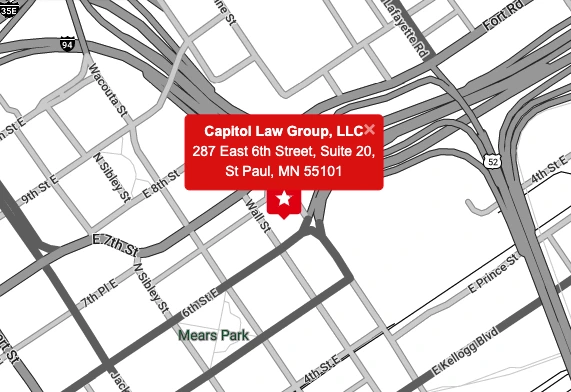A St. Paul Drug Crimes Attorney Looks at Possession Defenses

The ongoing opioid epidemic has changed the way jurors and policymakers view narcotics and other illegal drugs. Many prescription drugs, such as Fentanyl, are much more powerful, and much more addictive, than morphine or even heroin. As a result, in the minds of many, drugs are a health and safety issue as opposed to a criminal law issue.
Drug possession is one of the last vestiges of the War on Drugs. Over 80 percent of the drug arrests in Minnesota are for simple possession.
Drug possession laws have moderated recently, but they are still extremely harsh, even for things like marijuana possession. So, Ramsey County prosecutors are very aggressive in this area. Prosecutors have a steady supply of drug possession cases, because peace officers are equally aggressive on the street.
Despite their seemingly straightforward nature, drug possession cases have lots of moving parts. Therefore, there are several different ways for a St. Paul drug crimes attorney to defend these charges and achieve a successful resolution. That resolution could be a dismissal of charges, a plea to a lesser-included offense, or a not guilty verdict at trial.
Search and Seizure Issues
Physical evidence is key in drug possession cases. It is not illegal to use these substances. The landmark 1962 Supreme Court case Robinson v. California saw to that. It is only illegal to sell, or in this case possess, illicit substances.
Physical evidence is only admissible if police officers had a search warrant or a narrow search warrant exception applied. First, the warrant requirement. A piece of paper with a judge’s signature is not enough. The warrant must be supported by an affidavit which contains probable cause.
Very few possession cases involve search warrants. In almost all situations, police officers suspect that someone has drugs, they grab the drugs, and then let St. Paul drug crimes attorneys sort out the legalities later. These legalities usually involve one of the following search warrant exceptions:
- Plain View: Officers can always seize drugs or other contraband which they see in plain view. However, it’s hard to tell the difference between a legal and illegal substance simply by sight. Plain view assist cases, such as a passenger telling an officer there are drugs in the glove compartment, are in a grey area.
- Consent: Generally, vehicle passengers cannot give consent to search. Only owners or apparent owners can do that. An apparent owner is someone driving a friend’s car.
- Exigent Circumstances: This exception normally applies to dwelling and building searches. If officers suspect that someone is in trouble, perhaps because they received a disturbance call, they can enter the premises and perform a security sweep. During this sweep, they may seize any contraband they see in plain view.
If the warrant was invalid and the state cannot prove that an exception applied, the drugs are inadmissible under the exclusionary rule. Without such evidence, the case cannot move forward.
St. Paul Drug Crimes Attorneys and Establishing “Possession”
In the everyday world, possession is usually synonymous with proximity. A cup of coffee might not be in my hand, but if it is within reach, I possess it.
Criminal possession is different. For St. Paul drug crimes attorneys, proximity is only one element of possession. Ramsey County prosecutors must also establish knowledge. Assume Tom is in a friend’s car. He knows there is a brown bag under the seat, but he does not know what’s inside. If that bag contains drugs, Tom did not legally possess them. He did not know the contents.
The state must also establish control. Let’s stay with this example and change the facts. Assume Tom was a back seat driver’s side passenger and he knew drugs were under the front passenger seat. A St. Paul drug crimes attorney could argue that Tom did not exercise control over the drugs. This argument is stronger if, as was probably the case, someone else was sitting on top of the drugs.
Was the Substance Illegal?
Producing a substance in court and establishing that the defendant possessed it is not enough. Prosecutors must also establish that the substance was illegal. This issue arises in several different situations.
Illegal drug schedules are not set in stone. Substances are added or deleted from time to time. That’s especially true with regard to synthetically-produced marijuana substitutes. Furthermore, the illegal substance might only be an ingredient in the drug. Tylenol with Codeine is a good example.
Police officers always testify that they administered field tests and determined that a substance was heroin, marijuana, or whatever. These tests are completely unscientific. Laboratory tests often yield different results.
When policymakers legalized hemp, they inadvertently made marijuana possession cases almost impossible to prove in court. Hemp and marijuana are physically indistinguishable. Only a THC content test can determine the difference, at least beyond a reasonable doubt.
Reach Out to Dedicated Lawyers
Drug possession charges often do not hold up in court. For a free consultation with an experienced St. Paul drug crimes attorney, contact Capitol City Law Group, LLC. Go online now, call us at 651-705-8580, or stop by 287 6th St E, Suite 20, St Paul, MN 55101.




